A new song circulating online sounds strikingly like it could be the latest release from Justin Bieber, but the lyrics are raising eyebrows. Mentioning a “Diddy party,” the track has rapidly gained viral traction across social media platforms, leaving fans and experts alike questioning its authenticity.
First surfacing on platforms such as TikTok, X, and YouTube in April, the song’s popularity exploded following the recent arrest of Sean “Diddy” Combs. The lyrics are quite direct, featuring lines like, “Lost myself at a Diddy party/Didn’t know that’s how it’d go/I was in it for a new Ferrari/But it cost me way more than my soul.” Another line adds fuel to the speculative fire, stating, “Signed a paper so he never has to ever say sorry.”
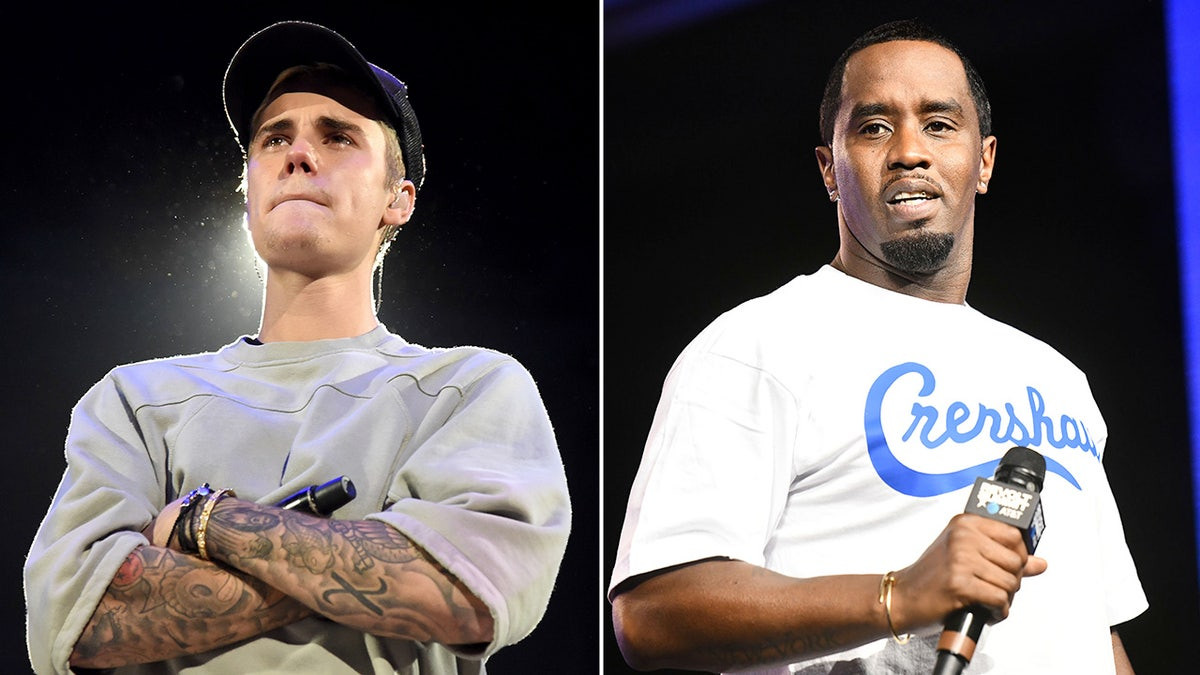 side by side photos of Justin Bieber and Sean
side by side photos of Justin Bieber and Sean
While the song certainly sounds like Justin Bieber, with lyrics referencing a “Diddy party,” the internet is buzzing about whether it’s a genuine release or an AI-generated creation. (Getty images)
The Mystery Behind the “Bieber Diddy Song”: AI or Authentic?
The buzz around this “Bieber Diddy Song” has reached such a fever pitch that representatives for Justin Bieber have been contacted for comment, though, as of yet, there has been no official response. However, a growing consensus among experts suggests that the track is likely not a genuine Bieber release, but rather a product of artificial intelligence or sophisticated digital music tools.
Marva Bailer, an AI expert, shared her insights with Fox News Digital, stating, “The reason why this is generated is because it is not something that’s being publicized by the artist. And when we say ‘AI-generated,’ that can mean a lot of things. And so AI actually trains on the voice and what could be going on. It could be an AI tool, or it could be an actual digital tool. These digital music tools exist. What makes it really getting this attention is the idea of AI because it’s happening so quickly and it looks so real, and so everyone is like, it must be someone that’s using something from AI to make it look this real.”
WATCH: AI EXPERT EXPLAINS WHY JUSTIN BIEBER WOULDN’T ADDRESS RUMORED FAKE SONG ABOUT DIDDY
 AI expert explains why Justin Bieber wouldn’t address rumored fake song about Diddy Video
AI expert explains why Justin Bieber wouldn’t address rumored fake song about Diddy Video
Bailer further elaborated on the typical rollout of new music, highlighting the absence of standard promotional activities. “Part of the experience of releasing new material is the pre- and post-part of the experience and that digital engagement. So right away we know that this is not real if the artist is not excited about it and hasn’t told us about it. We like surprises, and you see a lot of gamification to find out what’s in the vault, and what’s the new song going to be, and what’s the hidden track. We haven’t seen this with this scenario, and that’s why the fans are saying this is not my Justin Bieber.”
Rob Rosenberg, founder of Telluride Legal Strategies, echoed this sentiment, pointing to the timely and almost too-perfect nature of the song’s emergence. “It’s very difficult to tell, but I think the fact that it seemed very on point and topical, it almost felt too coincidental that it would show up,” Rosenberg suggested.
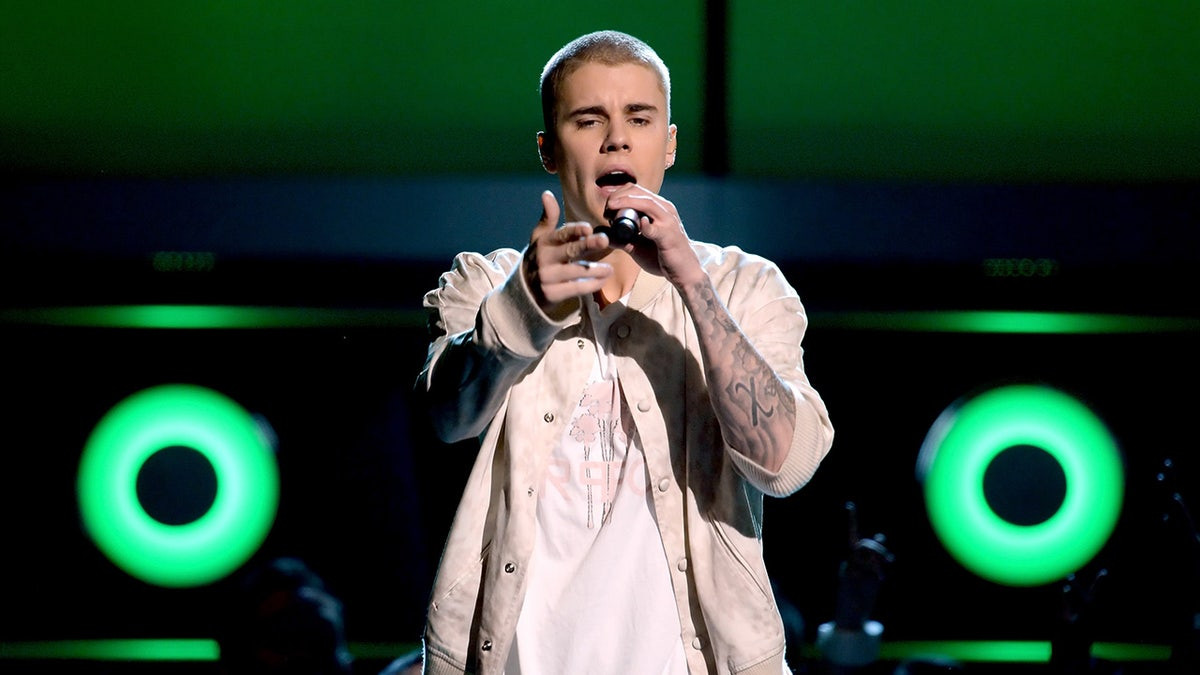 Exeprts say the song is more than likely AI for a variety of reasons, including Bieber
Exeprts say the song is more than likely AI for a variety of reasons, including Bieber
Experts believe the “bieber diddy song” is likely AI-generated due to several factors, including the lack of promotion from Bieber’s camp. (Kevin Winter/Getty Images)
Technical Analysis Points to AI Creation of “Diddy Party” Track
Adding to the evidence suggesting the “bieber diddy song” is AI-generated, CBS reported conducting tests using AI audio detection tools. The results from multiple tools indicated a high probability that the audio, or at least portions of it, was indeed created using artificial intelligence.
Pindrop, a voice authentication and security firm with extensive experience in the banking sector, has recently expanded its technology to detect AI deepfakes. Experts at Pindrop have identified specific “tells” within the Bieber-sounding track that are characteristic of AI-generated audio.
Sarosh Shahbuddin, Senior Director of Product at Pindrop, explained a key technical discrepancy. “When we speak, our speech is in a specific frequency range. And what we’ve noticed is that these AI generation systems, they sound really good, but they actually don’t match the way we speak to the exact frequencies like a normal human being. And so we’re able to detect these sort of like frequency variability in AI-generated speaking,” Shahbuddin detailed.
Elie Khoury, Ph.D. and VP of Research at Pindrop, further broke down these AI artifacts into three main categories: acoustic, phonetic, and temporal inconsistency, as well as the unique “digital fingerprint” left by the AI model itself.
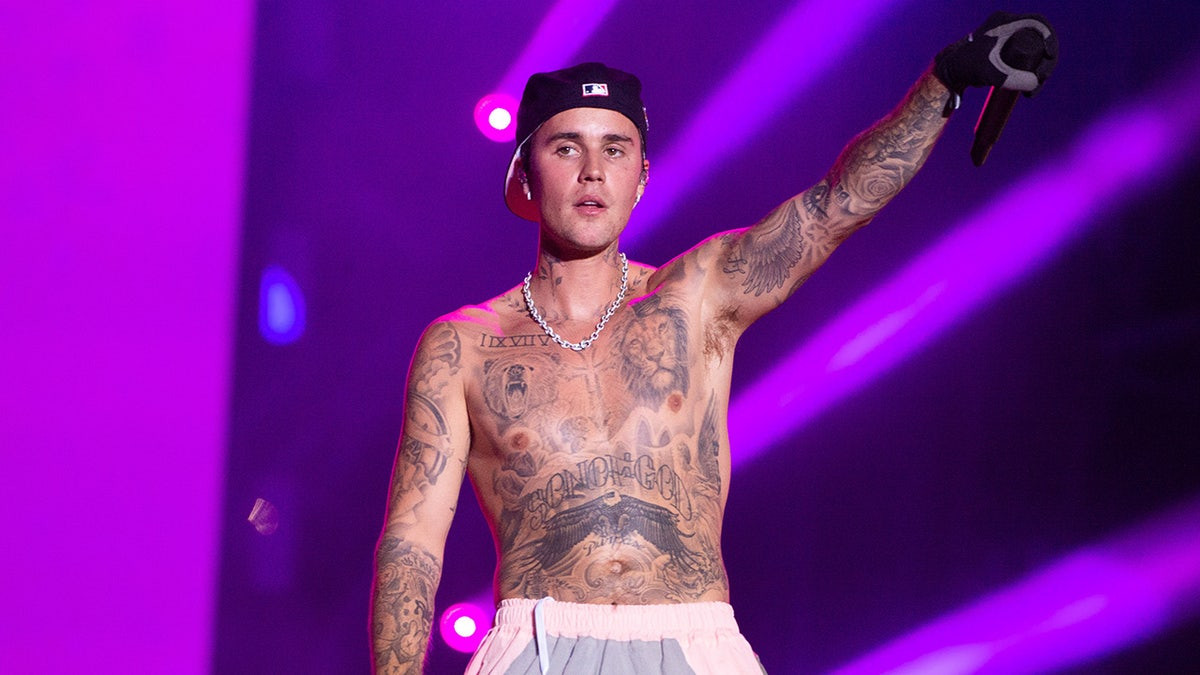 Justin Bieber standing onstage shirtless
Justin Bieber standing onstage shirtless
Experts at Pindrop utilize “digital artifacts” detection to identify AI-generated audio, suggesting the Bieber “Diddy song” is likely not authentic. (Joseph Okpako/WireImage)
The Wider Implications of Music Deepfakes and Artist Rights
Beyond the immediate question of whether the “bieber diddy song” is real, this incident highlights a growing concern: the financial and legal ramifications of AI-generated deepfakes for artists like Justin Bieber and the music industry as a whole.
Marva Bailer pointed out the potential revenue loss for artists due to the viral spread of unlicensed AI-generated music. “The [point] of TikTok is, you make your fun little creations, and you put cartoons and talking heads and fun new creations, and people are using this as the background music for these new creations. And so it keeps going on and on and on. And normally, if that was a licensed song, every time one of those creations would play, you would get royalties. And then this whole world, nobody’s getting any royalties,” Bailer explained.
Shahbuddin emphasized that music deepfakes represent a distinct challenge for platforms. “These social platforms are going to start to see music-related deepfakes as a very different category of media versus political or other types of deepfakes,” he stated. “And the reason is is that there are labels and sort of organizations that own the licenses to these singers and artists, and that impacts the way that royalty is distributed to these artists. So these singing deepfakes are actually a new class where there’s a significant revenue impact. And I think the platforms like YouTube are going to start to take this far more seriously than non-singing or music-related deepfakes.”
The ease with which these deepfakes can be created and disseminated, thanks to publicly available AI tools, adds another layer of complexity. “There’s very little that can be done to stop the use of those models. It’s crazy,” Shahbuddin admitted.
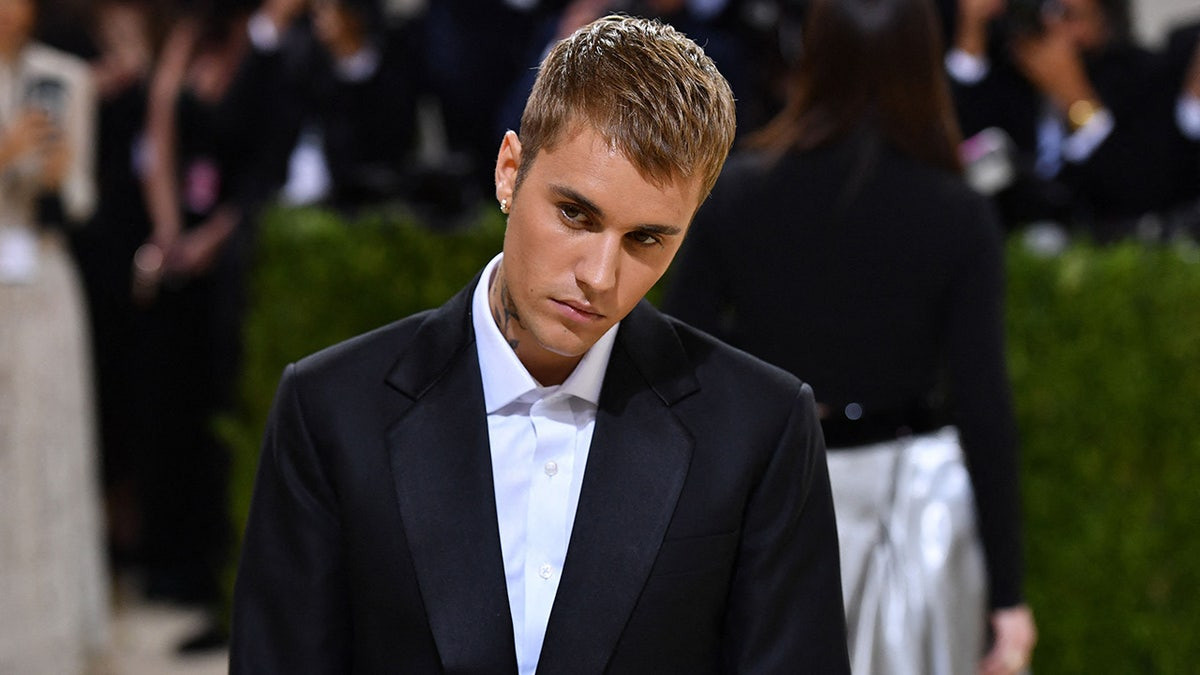 Justin Bieber tilting his head as he poses at the Met Gala
Justin Bieber tilting his head as he poses at the Met Gala
Pindrop experts note a significant increase in deepfake detection requests, highlighting the growing prevalence of AI-generated content. (ANGELA WEISS/AFP via Getty Images)
Why Bieber Remains Silent on the Viral “Diddy Song”
Despite the widespread attention garnered by the “bieber diddy song,” Justin Bieber himself has not publicly addressed the track or the speculation surrounding its AI origins. Experts suggest this silence is strategic and understandable.
Bailer argues that for a celebrity of Bieber’s magnitude, directly responding to every unauthorized use of his likeness or voice would be an overwhelming and potentially counterproductive task. “Bieber is not addressing it because he has millions of followers on Instagram, and he even [reportedly] gets paid close to $2 million to do a post on Instagram,” Bailer noted. “So if his PR team addressed every unauthorized remake of his music, that would be all that they would be doing. And by the way, he just had a child three months ago, so he’s busy with his family. Him and his PR team, they don’t want to put unwanted attention on people that are trying to harm his brand. And you also could argue, are they harming his brand?”
WATCH: VOICE AUTHENTICATION EXPERTS EXPLAIN WHY AI DEEPFAKES WILL FINANCIALLY IMPACT MUSICIANS
 Voice authentication experts explain why AI deepfakes will financially impact musicians Video
Voice authentication experts explain why AI deepfakes will financially impact musicians Video
Furthermore, the resurfacing of Justin Bieber’s past associations with Sean “Diddy” Combs, particularly in light of recent allegations against Combs, adds another layer of sensitivity to the situation. The lyrics referencing a “Diddy party” arrive at a particularly fraught moment, prompting renewed scrutiny of their past interactions.
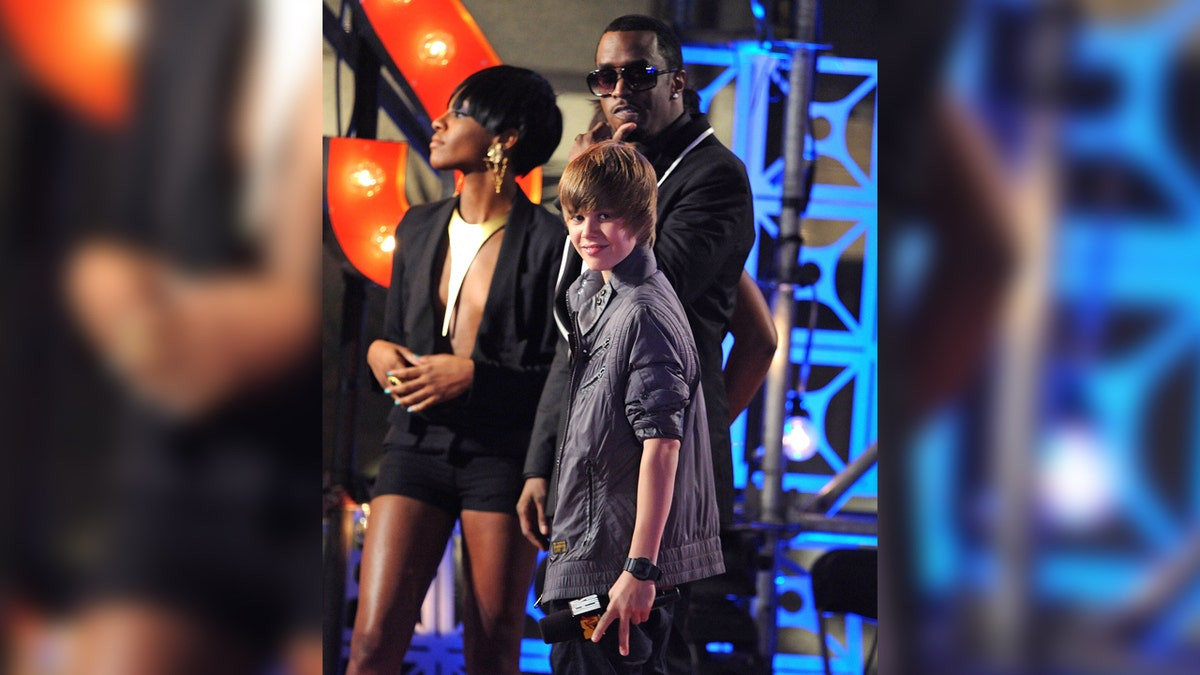 young Justin Bieber with Sean
young Justin Bieber with Sean
Justin Bieber’s early career and association with figures like Diddy are being re-examined in the context of the viral AI song and recent events. (Getty Images)
Navigating the Age of Deepfakes and Disinformation
As the legal proceedings surrounding Sean “Diddy” Combs unfold, experts caution against readily accepting all information at face value. Rob Rosenberg warns of the potential for both genuine revelations and deliberate disinformation to emerge.
“I actually think we’re going to see a lot more new information come to light, and I think at the same time that’s happening, there’s going to be new disinformation,” Rosenberg stated. “There’s going to be deepfakes, people who are exercising all their creative juices and creating images and video and stories, which is why people are really going to have to scrutinize the things that they see and they find to make sure they’re not just being messed around with.”
The “bieber diddy song” serves as a stark reminder of the increasing sophistication and accessibility of AI deepfake technology. It underscores the challenges artists, platforms, and audiences face in discerning reality from fabrication in the digital age, and highlights the urgent need for media literacy and critical evaluation of online content.
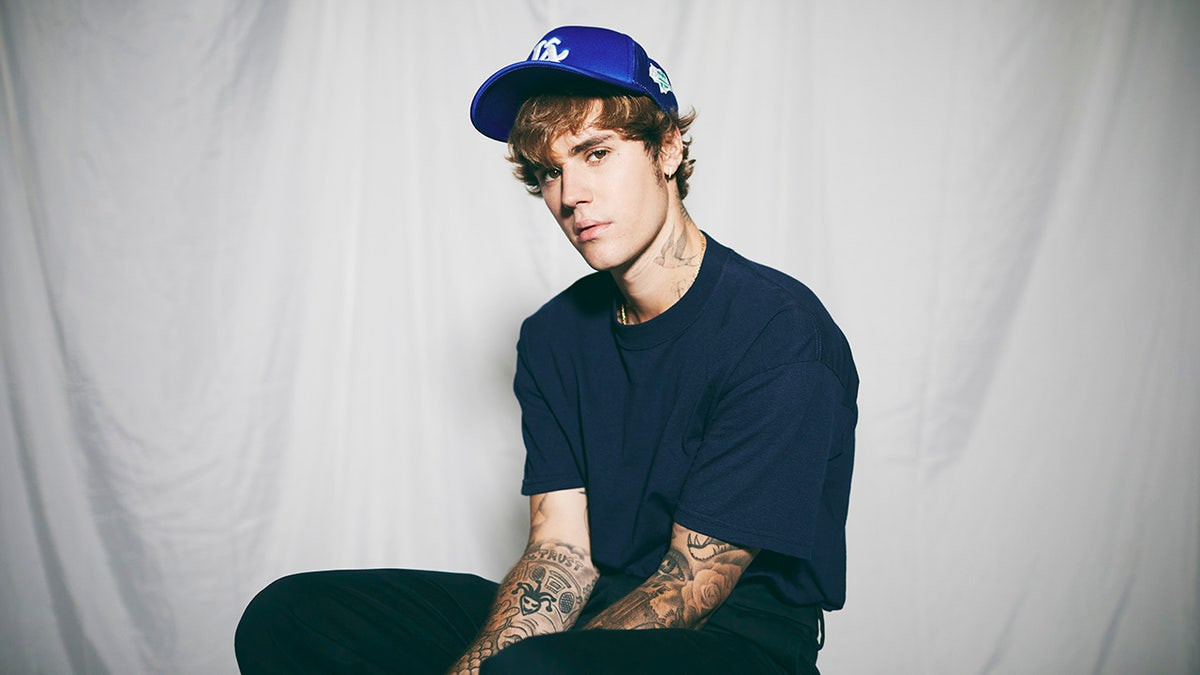 Bieber has not addressed the song or the rumors that it was faked by AI.
Bieber has not addressed the song or the rumors that it was faked by AI.
Justin Bieber’s silence on the viral “bieber diddy song” is seen as a strategic move amidst the deepfake controversy and renewed attention on his past associations. (Mike Rosenthal/Getty Images)
